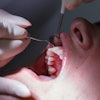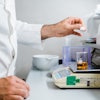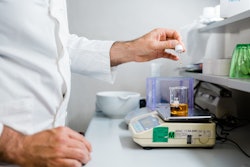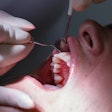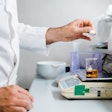Editor's note: The following was submitted as a letter to the editor by Dr. Richard Nagelberg.
Dear Editor,
I am writing to express my concerns regarding the increasing use of non-U.S. Food and Drug Administration (FDA)-approved minocycline gel as an adjunctive treatment for periodontitis, being ordered from compounding pharmacies. While innovation in dental therapeutics is always welcome, it is imperative that such advancements align with rigorous safety and regulatory standards to protect both patients and providers.
 Dr. Richard Nagelberg.
Dr. Richard Nagelberg.
Minocycline gel (2%, 3%, 4%, etc.), in its compounded formulations, is not FDA-approved, untested, and therefore lacks the critical oversight necessary to ensure its safety and efficacy. According to the FDA, “Consumers should be aware that compounded drugs are not FDA-approved. This means that the FDA does not review these drugs before they are marketed to evaluate their safety or effectiveness. In addition, and of particular concern, poor compounding practices can result in serious drug quality problems, such as contamination, using medications that do not possess the strength, quality, and purity they are supposed to have. This can lead to serious patient injury and death.”
Arestin is FDA approved and is not just minocycline, it is formulated in a unique way, which is part of the drug's mechanism of action. It is this particular formulation which allows the drug to remain active for at least 14 days in periodontal pockets. Extensive and ongoing clinical trials provide substantial supportive efficacy and safety data.
Another consideration is the stability of chemical entities, including minocycline, to light and heat, which could complicate how products are manufactured and the containers used when dispensed to the dental office.
As healthcare professionals, informed consent is critical to ensure that patients are fully aware of the non-approved status of the treatment, its associated risks, and potential uncertainties, including adverse events and efficacy. Providers must disclose this information transparently, allowing patients to make informed decisions about their care. Failure to make the patient aware that a non-FDA-approved material is being used in their oral cavity would not comply with ethical standards of informed consent.
The dental community must be vigilant about the need to avoid the utilization of non-approved treatment modalities.
Sincerely,
Richard H. Nagelberg, DDS
Director, Medical Affairs, OraPharma, a division of Bausch Health US LLC
The comments and observations expressed herein do not necessarily reflect the opinions of DrBicuspid.com, nor should they be construed as an endorsement or admonishment of any particular idea, vendor, or organization.
